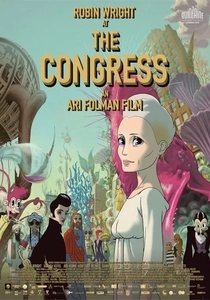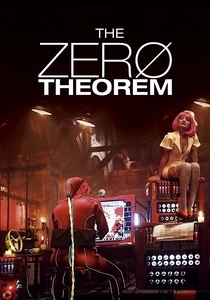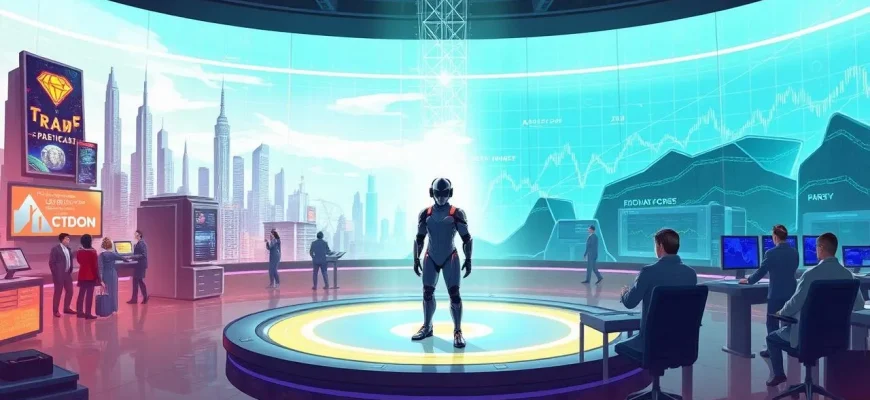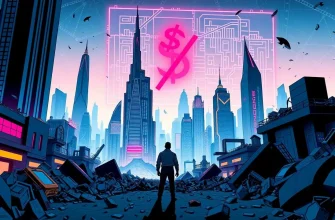Imagine a world where financial markets are not just about stocks and bonds but are intertwined with futuristic technologies, time travel, and mind-bending schemes. This curated list of 10 sci-fi films explores the thrilling intersection of finance and fantasy, offering viewers a unique blend of economic intrigue and speculative fiction. From virtual realities to dystopian futures, these movies provide a captivating look at how money and power might evolve in the future, making them must-watch for anyone fascinated by both finance and science fiction.

The Matrix (1999)
Description: While not explicitly about financial schemes, The Matrix explores a world where human energy is the currency, and the control of this resource by machines mirrors financial manipulation in our society.
Fact: The Wachowskis initially pitched the film as a comic book, and it took several studios to finally greenlight the project.
 Watch Now
Watch Now 
The Island (2005)
Description: This film explores a dystopian society where clones are raised for organ harvesting, touching on themes of commodification and the ethics of human life as a financial asset.
Fact: The film was initially conceived as a sequel to "Logan's Run," but evolved into its own story.
 Watch Now
Watch Now 
Repo Men (2010)
Description: Set in a future where artificial organs are available on credit, the film follows repo men who repossess organs from those who can't pay, highlighting the dark side of medical finance.
Fact: The film's original title was "The Repossession Mambo."
 Watch Now
Watch Now 
The Adjustment Bureau (2011)
Description: While primarily a romance, this film touches on the idea of fate manipulation by a mysterious organization, which can be seen as a metaphor for financial manipulation in a broader sense.
Fact: The film is based on a short story by Philip K. Dick, who is known for his explorations of reality and control.
 Watch Now
Watch Now 
Elysium (2013)
Description: In a future where the wealthy live on a luxurious space station, the film examines the economic divide and the lengths to which the underprivileged will go to gain access to the resources of the elite.
Fact: The film's title "Elysium" refers to the Elysian Fields, the final resting place of the heroic and virtuous in Greek mythology.
 Watch Now
Watch Now 
In Time (2011)
Description: In a future where time is literally money, people must work to earn time to live, and the rich can live forever. This film delves into the financial implications of time as currency, showcasing a heist to redistribute wealth in the form of time.
Fact: The film was inspired by the concept of time as currency in the short story "The Time Check" by Edward Bellamy.
 Watch Now
Watch Now 
The Congress (2013)
Description: A blend of animation and live-action, this film examines a future where actors sell their digital likenesses, exploring the commodification of identity and the financial implications of such transactions.
Fact: The film is loosely based on the novel "The Futurological Congress" by Stanisław Lem.
 Watch Now
Watch Now 
The Zero Theorem (2013)
Description: This film explores a dystopian future where a reclusive computer genius works on a project to prove the meaninglessness of life, which can be interpreted as a critique of the financial systems that drive our existence.
Fact: The film was directed by Terry Gilliam, known for his unique visual style and dystopian themes.
 Watch Now
Watch Now 
The Circle (2017)
Description: While not strictly sci-fi, this film delves into the world of a tech company that blurs the lines between privacy, surveillance, and corporate power, reflecting modern financial and data manipulation.
Fact: The film is based on the novel by Dave Eggers, which explores similar themes of technology and privacy.
 Watch Now
Watch Now 
The Platform (2019)
Description: In this Spanish film, prisoners are housed in vertical cells where food is distributed from top to bottom, symbolizing the distribution of wealth and the manipulation of resources in society.
Fact: The film was a surprise hit on Netflix, sparking discussions about social inequality and resource allocation.
 30 Days Free
30 Days Free 








